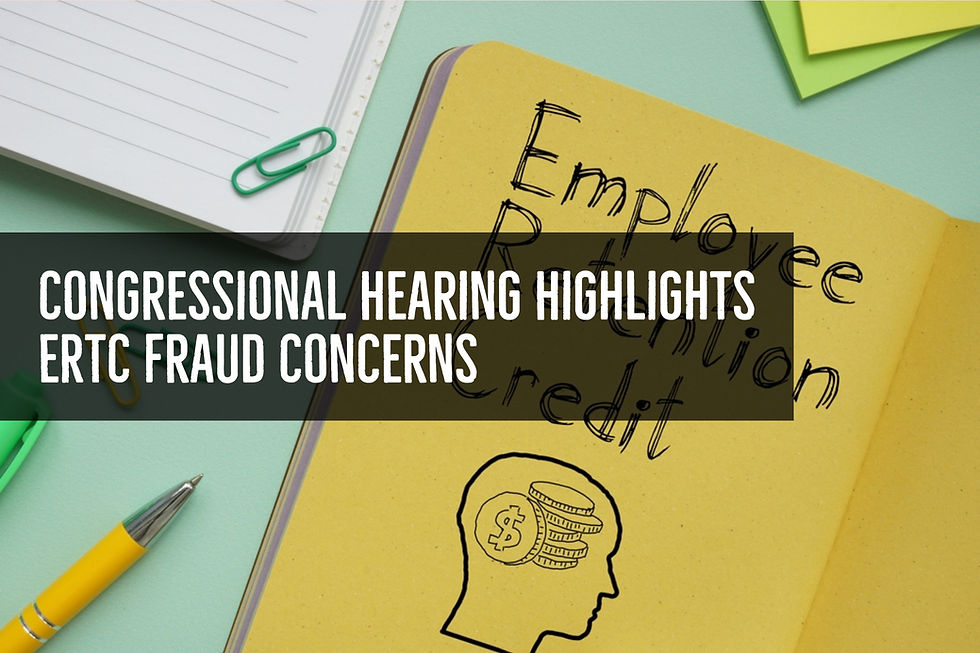- Talley LLP

- Aug 5, 2023
- 2 min read

At a recent congressional hearing, tax professionals and other experts voiced their concerns over the Employee Retention Tax Credit (ERTC) and the challenges it poses to employers, particularly considering unscrupulous sales tactics promising significant tax refunds. These claims come amidst IRS processing delays and increased scrutiny due to rampant fraud.
The Employee Retention Credit (ERC), a critical pandemic relief measure for businesses, has been targeted by fraudsters capitalizing on its complexity. The IRS has consequently listed ERC scams in its 2021 "Dirty Dozen" tax scams, emphasizing the importance of engaging a legitimate CPA firm to prevent falling prey to these schemes. Scammers typically solicit personal or business information to file false claims, leading to considerable financial, legal, and reputational damage. The IRS is dedicated to prosecuting these scammers to uphold the program's integrity. Partnering with a reputable CPA firm can help businesses circumnavigate these fraudulent schemes, ensuring compliance with tax regulations and safeguarding their financial stability. To select a trustworthy CPA firm, businesses should research the firm's reputation, verify its accreditation and licenses, and assess its communication and responsiveness. By doing so, businesses can fully benefit from the ERC while minimizing risk.
Rep. Suzan DelBene, D-Washington, probed how fraudulent ERTC applications could potentially devastate small businesses who unknowingly apply through so-called ERTC mills. Roger Harris, president of Padgett Business Services, explained that if such businesses are audited, they may face ruin as they may not qualify for the ERTC and yet have already used the funds. If the IRS determines their ineligibility, these businesses will need to pay back the sum, potentially with penalties and interest. Harris also highlighted that these ERTC mills might not be available to assist their clients during an audit in the future, making it difficult for businesses to provide the necessary documentation on their qualification and calculation for the ERTC.
Larry Gray of AGC CPA and Linda Czipo, CEO of the New Jersey Center for Nonprofits, have identified issues with misleading Employee Retention Tax Credit (ERTC) advertisements and a lack of transparency regarding ERTC. They highlighted that ineligible businesses are often misled by fraudulent third-party ERTC mills, and nonprofit organizations suffer from confusion between the ERTC and other pandemic relief programs. Rep. Brian Fitzpatrick echoed concerns about IRS processing delays affecting tax refunds across various sectors. To alleviate these issues, Gray, along with Pat Cleary of the National Association of Professional Employer Organizations, urged for better IRS communication about the ERTC and a technology upgrade to efficiently handle the surge in claims and amended returns.
Talley’s professionals have spent literally hundreds of hours reviewing the law, regulations, and FAQs issued on an almost daily basis regarding the ERC and PPP, and we are happy to assist you in the process. We are available to simply answer a quick question or assist in the application and/or refund process. Contact us today.



Comments